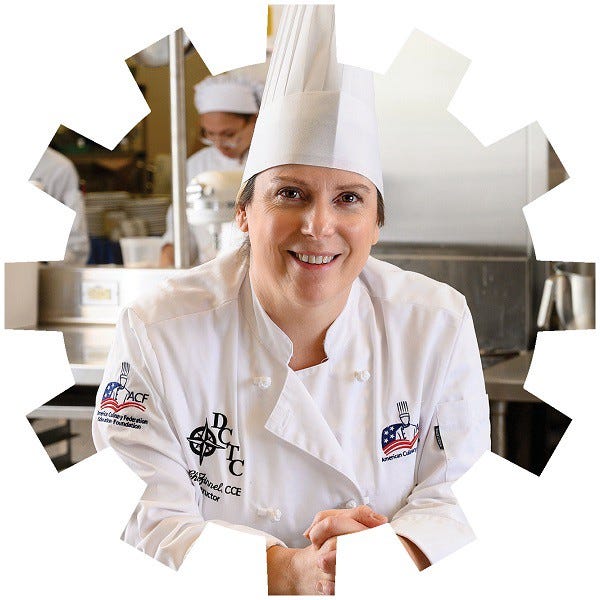Dorchester County Teacher of the Year: Why I’m Passionate about CTE
Chef Charlene Zinnel may be the quintessential CTE teacher — skilled in her area, trained for the classroom, and committed to the promise of CTE.
“CTE is a natural collaboration in all areas of academic courses. CTE students are learning a specific trade. However, they need all the academics to fully understand the concepts delivered.”
— Chef Zinnel

Charlene Zinnel is a culinary arts teacher at the Dorchester Career and Technical Center (DCTC). She’s also the county’s 2019 Teacher of the Year, taking the opportunity to share her passion for career and technical education and what it offers students and their communities.
How is student learning in CTE different than what students might find in their home high school? Students have more expectations here at DCTC. Each program is treated like a business. We are modeling not only the career readiness skills necessary but really simulating what occurs in our industry. We follow all industry standards and procedures. The curriculum is very rigorous and is demanded by our certifying bodies.
Where do CTE and academic courses meet in a student’s school career?It is a natural collaboration in all areas of academic courses. CTE students are learning a specific trade. However, they need all the academics to fully understand the concepts delivered. They have to think critically to determine when, how, and why they are using those skills, which is very challenging. This is a big surprise to most people not familiar with today’s CTE.
Most important and vital to our work in CTE is that when students apply those theories and skills in whatever area they’ve chosen, they make full circle connections that bring relevance and meaning to what they’re learning.
What are the gifts a strong and supported CTE program bring to students, parents, and the community? It gives the students motivation, inspiration, and a tangible goal to be successful. Our mantra at DCTC is: Rigor, Relevance, and the Reason to Achieve.

